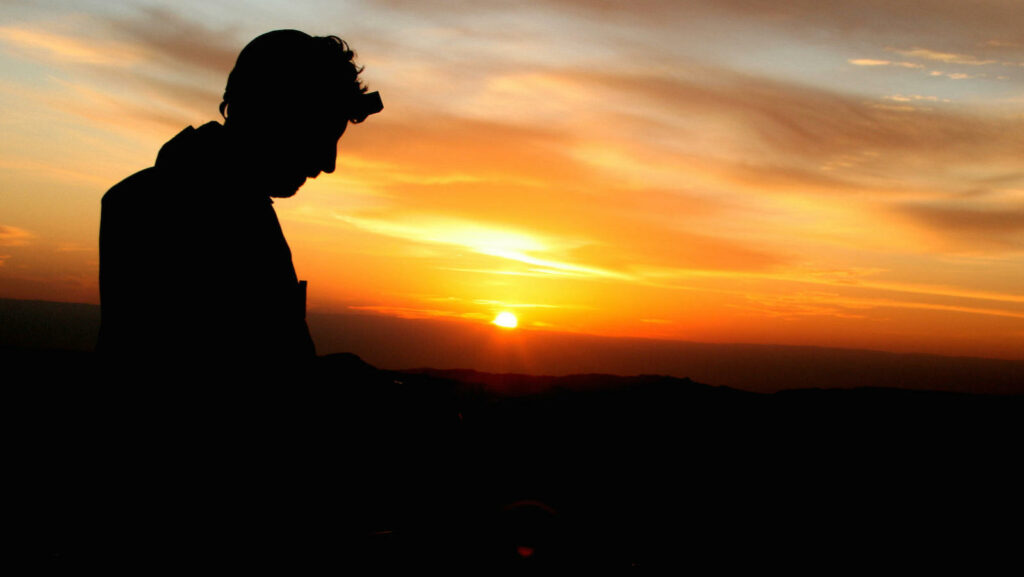Elul begins, a very particular month, as there are no festivals or remembrance dates, but it is the month of greatest spiritual labour.
From the first day of this month, it is customary to hear the sound of the shofar every morning to help us awaken what we have experienced this year, become aware of the soul work we must do, and so, in this way, start with our Teshuvah (introspection), the Cheshvon Hanefesh, the balance of the soul.
During Elul, Selichot is also performed – סליחות – the plural of Selichah, which means forgiveness in Hebrew. Forgiveness (both requested and granted) is part of the ritual of the beginning which in turn marks the end of what was, to begin with what will be, and in this circularity – as circular as the moon by which our calendar is governed – You always have to start and finish being able to free your soul by performing an action.
Different are the customs within the Jewish world with respect to Selichot. In Sephardic communities, Selichot takes place from the first day of Elul, every day on the arrival of dawn.
In Ashkenazi communities, Selichot is held at the end of Shabbat before Rosh Hashanah at midnight. The sheliach tzibur usually wears the tallit.
The essence of the Selichot ceremony consists in the recitation of the thirteen attributes of mercy that are listed in the verse of Exodus 34: 6-7 “Adonai Adonai, El Rachum vechanun…” “Compassionate and Benevolent God…”, also during the ceremony, the Ashamnu, which is the communal confession, is pronounced and ends with the blowing of the shofar.
Today, Selichot marks the preparation before the arrival of the new Yamim Noraim. Every time a new year starts, it is time for change. For humans, this change, unlike nature or animals, requires an act of will. Changing means being able to look inside our being, being able to think about the mistakes made, and asking ourselves if we are willing to acknowledge that mistake. Recognising a mistake means starting over and that is something that costs. It means being able to ask for forgiveness.
On the night of Selichot, we began the path towards recognising this sense of change.
We must understand that the first work we must do is Teshuvah: the introspection that leads us to recognize ourselves as people and to be able to repent, and as the same word says to be able to give Teshuva (answer) to error or action performed incorrectly.
The Rambam – Maimonides – in the laws concerning repentance teaches that the true Teshuvah consists on understanding that when one makes a mistake against his neighbour, that mistake is never forgiven until he gives to his neighbour all he owes and is reconciled with him. It is pointless to start a new year if personal Teshuvah has not led us to make amends for a mistake made with a friend, family member, or loved one.
In our day, we have the great challenge of becoming aware of the value and meaning of the word forgiveness. It is pointless to say it if the internal work has not been done. Just as being able to ask for forgiveness is so important, a great job is being able and learning to forgive.
About this, the Rambam teaches us that you cannot be cruel to the point of not accepting excuses; on the contrary, it is good to be easy for reconciliation and not get angry so easily.
May this 5782 that begins, allow us to make our x-ray of the soul, the most difficult work of all, to be able to look inside ourselves and be able to ask ourselves what we want to change, and what are our actions with which we shall keep working.
Have you started this internal work? Are you willing to forgive and ask for forgiveness?
Shana Tova Umetuka!
May we be inscribed and sealed in the Book of Full Life.
—
Rabbi Adrian Fada
Comunidad NCI-Emanu EL, Arlene Fern Community School
Judaica Belgrano – Fundación Judaica
Argentina
—
Picture from hazon.org


